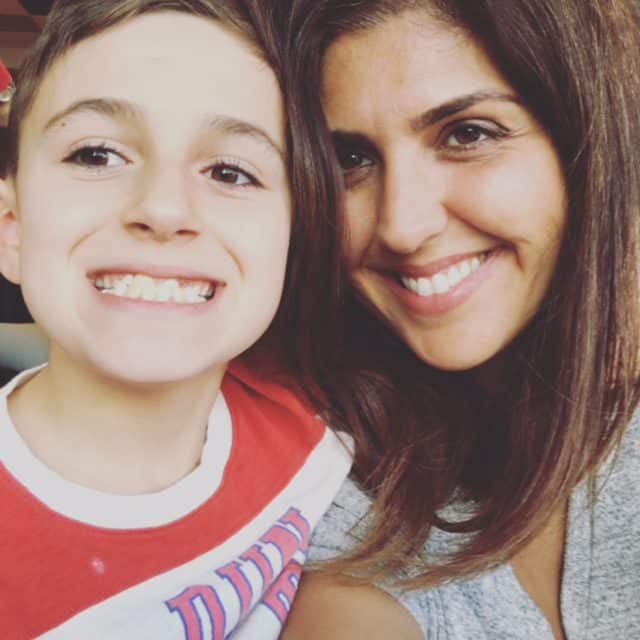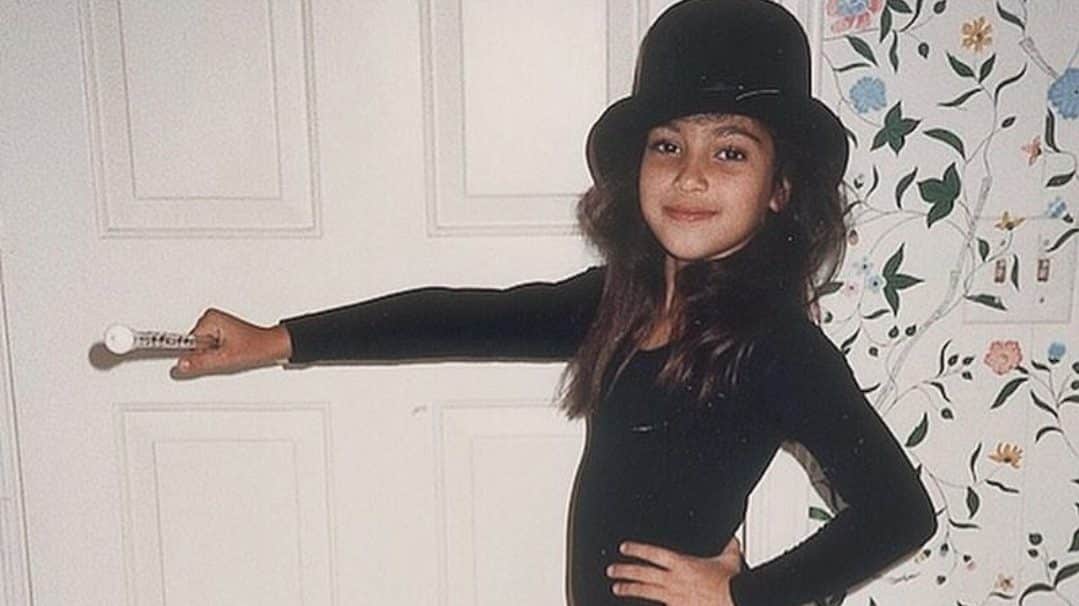Part II: THE “A” WORD
By: Natasha Tsagogeorgas
I’d be remiss if I didn’t stick a HUGE mofo disclaimer here. I AM NOT a specialist in child development, Autism, ADHD, Learning Disabilities or any other pathologies, conditions and disorders. There is no intent here to provide a basis for diagnosis or to trivialize what anyone else might be going through. What I AM is a mother who sought help for her “quirky” child. And here’s how that finally turned out.
Dark Eyed Baby Boy (we’ll call him “N”) met his first professional at age 4. She was a lovely speech/language pathologist (SLP) who told me that “10 years ago, he wouldn’t have been on anyone’s radar”. When I asked what that meant, I was told “he’s just quirky”.
In grade 1 his teacher told me that she had “huge red flags” for him. When I probed specifics, I was told that he would take more than his fair share of paper and would not listen to her. (Um, ok??) We consented for the school psychologist to assess him and her report was that he “was quirky”.
I asked if I should have him tested for Autism. She said no. She said there might be a learning disability, but we needed to monitor it.
That summer, I took him to a private child psychologist who met with N and played with him for an hour. The answer? (all together, now) “He’s quirky”.
What does “quirky” look like?
For N, he is tremendously intelligent for his age, but his social skills are definitely not at par with his peers. He prefers to play alone, although he does have a couple of friends he likes. (This didn’t start until he was 7 or 8).
He has very intense interests (loves: luxury cars, trains and learning about far-away places…”Mommy, I want to go to China and Tanzania!”). His language skills are super advanced and yet he has a tough time articulating himself (which is resolving the older he gets).
He really likes a routine, but can pivot if he needs to. His decoding skills are ridiculous; he was completing 100-piece puzzles by the age of 3 and he very rarely doesn’t know how to spell a word.
When he was little, I was VERY apprehensive to put him in front of the wrong set of eyes. Misdiagnoses happen all the time and I didn’t want N to live with an unnecessary stigma. Plus, I was scared shitless of Austism Spectrum Disorder (ASD).
A word about that. The 6-years-ago (and very uneducated) me defined ASD as a continuum which always ended in the child/person somehow being non-verbal and repetitive in their behaviours. I thought that if one was diagnosed with ASD, they would invariably end up on that severe end and have no hope for a future. For me, a diagnosis of Autism for N would mean that one day his disorder would progress into the worst case scenario (like, MS, Alzheimer’s etc).
I know now that it doesn’t work that way. ASD is a collection of behaviours which are grouped together and defined under an umbrella. They range quite vastly in severity and are not always an impairment to everyday life. With therapy and age, people tend to improve, not get worse.
Years passed and N met with approximately 14 different professionals. While we didn’t have a diagnosis of any sort, I still enrolled N in social skills groups (called “Friendship Clubs” – how cute, no?) and had him work with an SLP on a weekly basis. I didn’t care what it was called; I just wanted to help my child progress in the areas he was experiencing difficulty in.
N’s success in school typically relied heavily on the sort of teacher he was paired with. For the most part, his academics were fairly good while his social skills took longer to progress. If his teacher “got” him, it was business as usual. With other teachers, it wasn’t so easy. Some could not understand why he was resistant to some assignments or was reluctant to participate in groups.
In grade 4, my husband and I decided to hire another private psychologist and have N fully assessed. We needed to understand him for once and for all.
The process was fairly intensive: First she met with us (his parents) for 2.5 hours. Then, she met with N for a series of sessions during which she administered various tests. Through the waiting room door, I could hear my son saying things like: “why do you keep asking me these questions?” or “Ugh. Are you finished yet?”. (Definitely added some comic relief to the process.)
On a cold January day in 2016, my husband and I sat with her to go over the results. Our son has an interesting mix of a potential Learning Disability and ADHD with deficits in reciprocal social interaction and rigid tendencies (say that 5 times fast).
However, the clinician diagnosed him with “very mild and very subtle” Autism. While the term “Asperger’s Syndrome” has been set aside in DSM IV (the bible for diagnosing disorders of the brain), she told us this was the closest description for him.
There. She said it.
I think I stopped breathing for 30 seconds, as 6 years of anxiety and fear came to a head. Accordingly, I let lose 6 years of built-up tears and terror. I had no idea my eyes held that much water.
And then, slowly, I began to feel at peace.
Peace because he was still my little boy with the gorgeous dark eyes. Peace because I now had a reference point for some of his “quirky” behaviours. And peace that, despite not knowing what it was called, I’d been giving him the correct supports all along.
Would I have done anything differently? Yes and no.
In the specific case of my son, I would not have had him tested earlier, which is completely contrary to everything that is out there. It is very true that early detection means that supports can be offered sooner. However, I also balanced that with the reality that some normal childhood behaviours can overlap with pathologies. I didn’t want to risk him being mis-diagnosed because that comes with its own set of concerns. For N, my husband and I chose to listen to our hearts and to trust what we saw in front of us.
What I would have done differently is not fear the unknown so much. I spent a great deal of time researching the wrong information online and fearing how horrible the world would be for my son.
In actuality it’s been quite the contrary; I’ve seen how much GOOD there is in this world and just how many people have devoted their lives to trying to help others. My little guy has an army in his corner who help him where he needs it. And every day, week, month, we see remarkable progression.
He now tells me when he gets frustrated, instead of just getting pissed. He explains when he’s having challenges with his schoolwork, instead of just not attempting to do it. He even had his first phone call at home from a friend this week!
My son’s speech therapist gave me a beautiful passage describing what it feels like to parent a child with special needs or who needs extra help. (I wish I still had it so I could give credit to the original author). I went something like this:
Imagine you’ve planned an amazing trip to Italy. You took the time to learn the language, bought the appropriate tour books and converted your money into the local currency. You have your whole itinerary laid out; what you’ll see, where you’ll eat, all the great things you’ll do.
You excitedly get off the airplane… And you realize you’re in Amsterdam.
You have no idea where to go and no clue how to communicate with the people there. You have no money. You are crushed, because you REALLY wanted to go to Italy. You don’t understand why you ended up here. This is not the trip you planned.
But then you look around and slowly realize that Amsterdam is pretty damn cool. It has it’s own beauty, it’s own language, it’s own very special culture. There is magic and excitement in Amsterdam. And you can have just as great a time there.
It was a long road to get here, but I’m really starting to love my adventures in Amsterdam.
***

***
Follow The Rebel Mama on Instagram | Facebook | Twitter
*****SHOP THE REBEL MAMA*****
Feeling like a hot hormonal mess? We got you: Dear Anxiety, Mom Guilt, How To Not Be A Judgemental Cow, How to Not Lose Your Shit on the Daily, Motherhood: You Can Say It Sucks, The Body Image Battle, Postpartum Depression: The Journey Pt. 1, Brave New Girl, Regretting Your Kids.






Trackbacks/Pingbacks